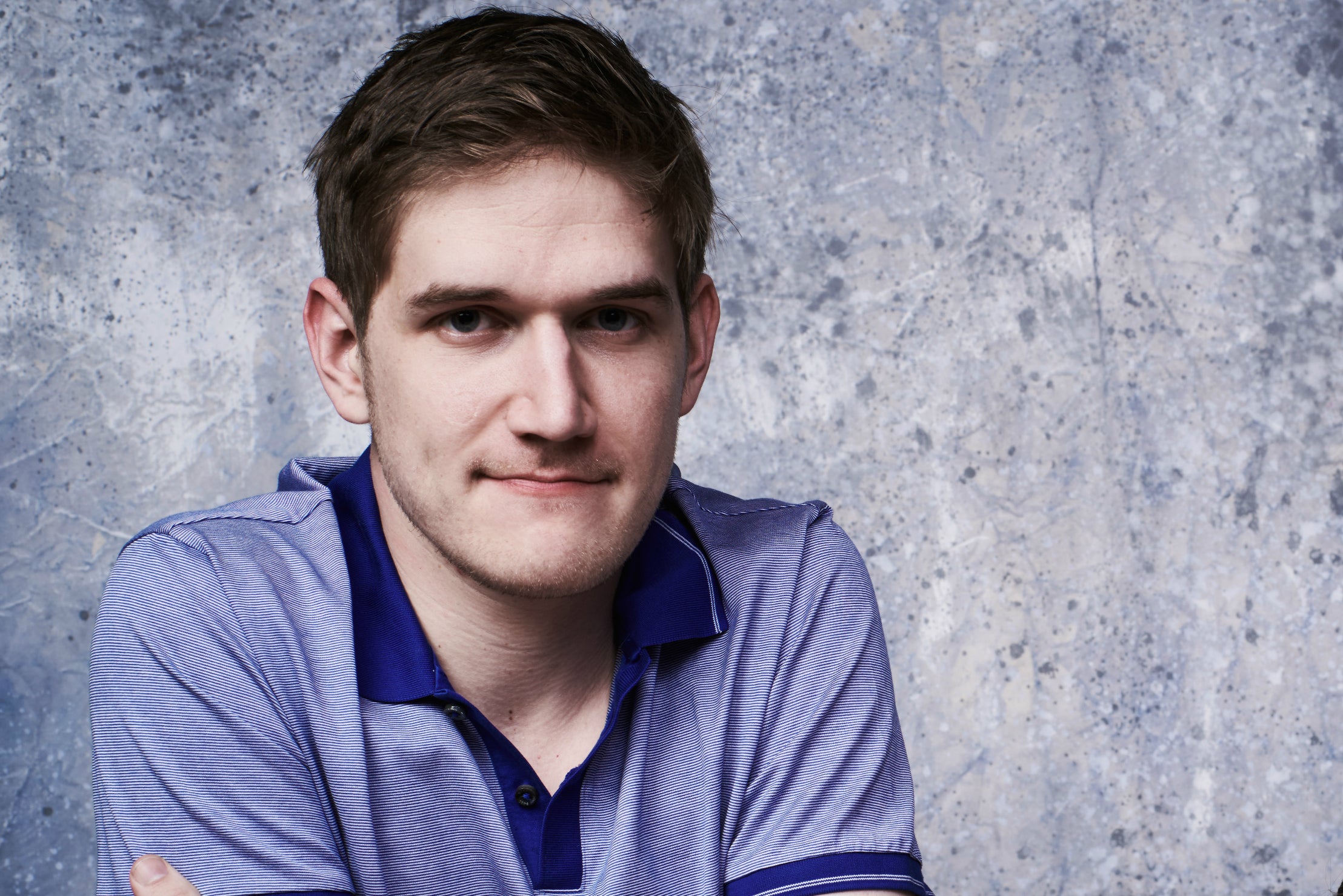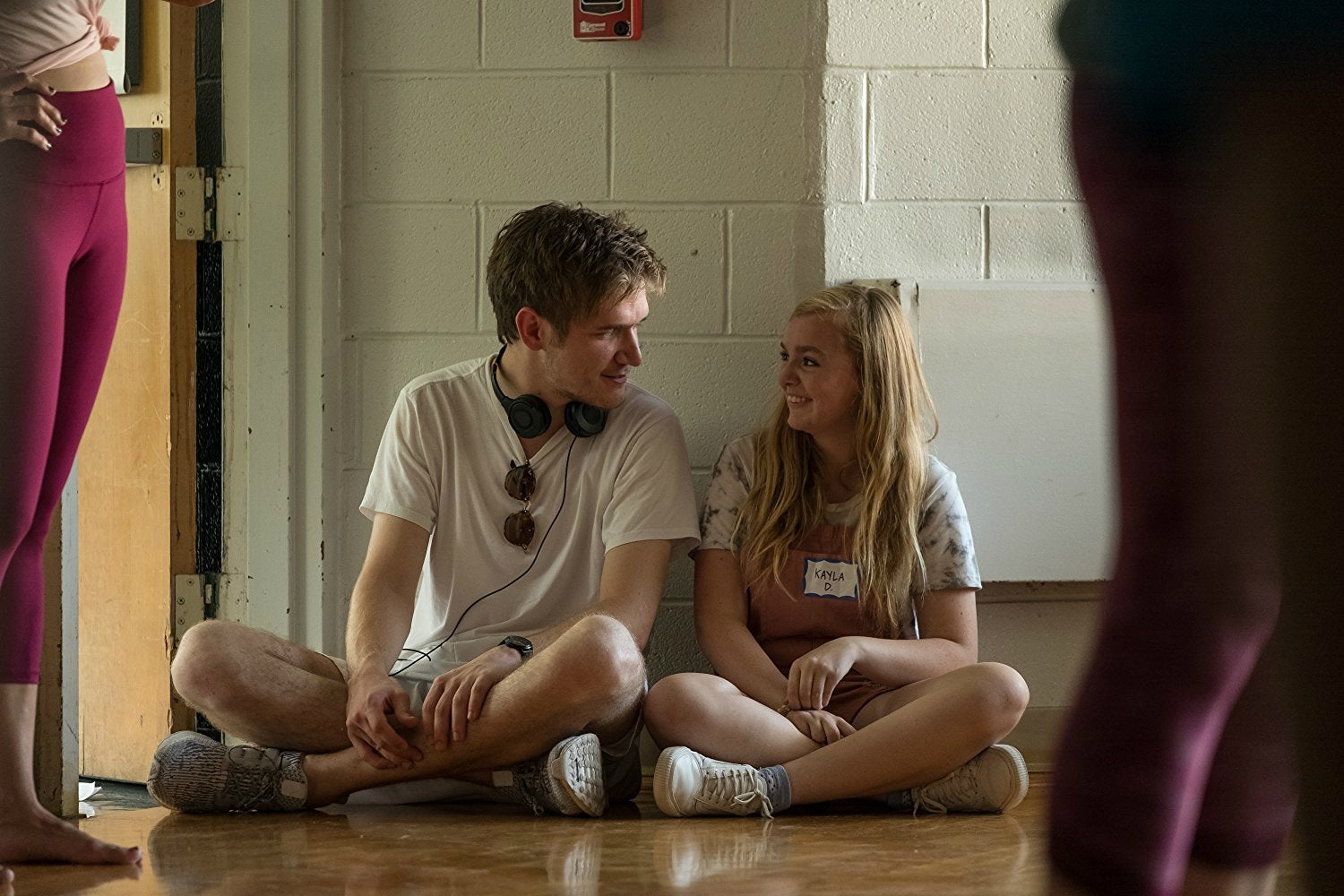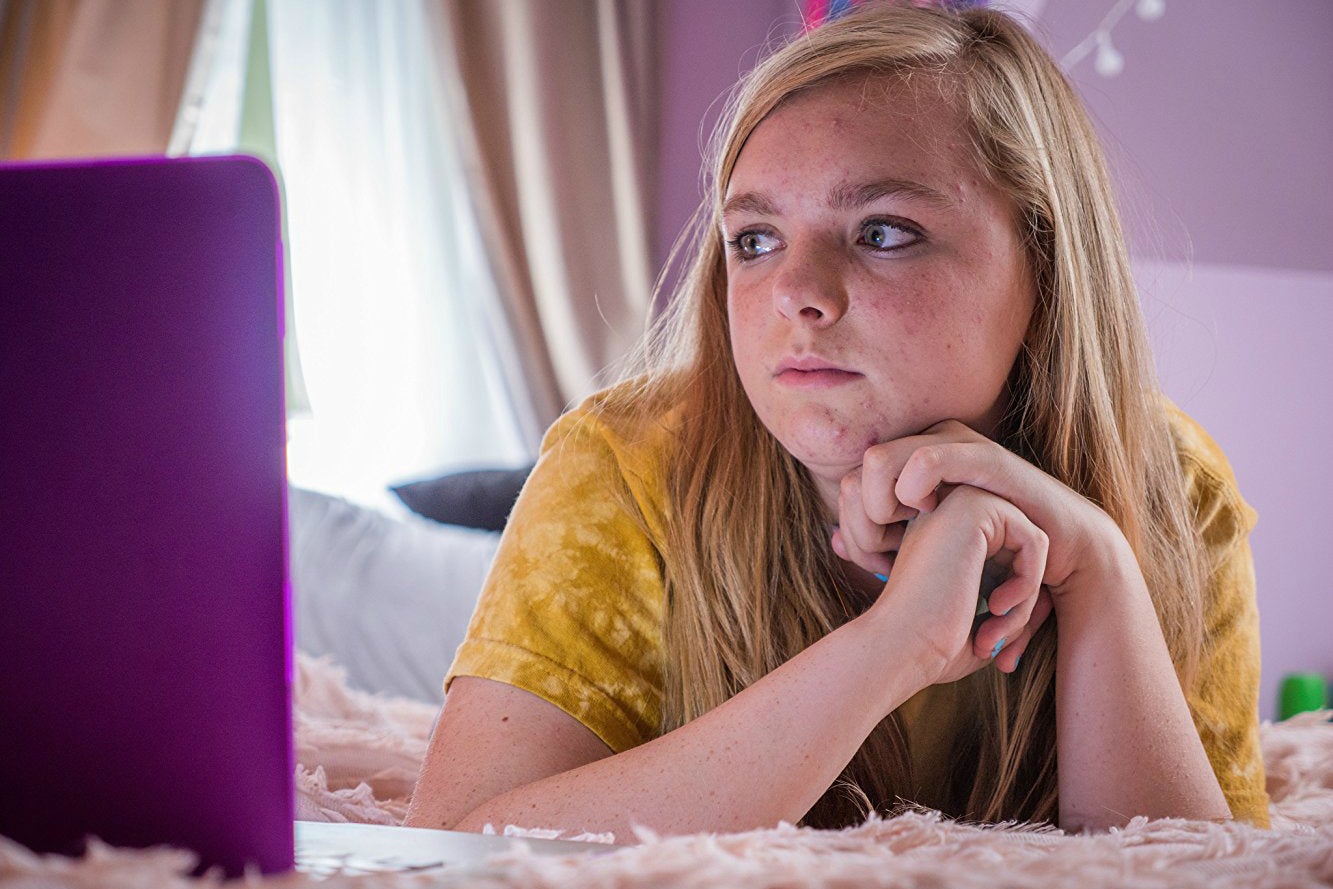Bo Burnham's Eighth Grade finally tells the truth about growing up with the internet
'The way in which they view the world, the way in which they view themselves, the way in which they meet other people, the arena in which all of their emotions exist – it’s very different'

Cinema finds a euphoric release from the stories of our adolescence. They’re an outlet to spill hazy nostalgia across the screen, like spilled perfume, sweet but sharp on its arrival. Its potency drawing from its sense of familiarity.
A coming-of-age film can retell our own lives through the eyes of a stranger; it can find a bridge between the emotions of our past, and the feeling of our present. They’re an opportunity to learn how we’ve changed – and how we’ve failed to change.
Lady Bird to Boyhood, Almost Famous to Goodbye First Love; again and again, we see what feels like our own stories as filtered through cinematically rendered snatches of memory.
And then there’s Eighth Grade, Bo Burnham’s feature debut; a film which can find those same emotions, that centre of self-reflection, but within the bounds of an entirely contemporary story. As he notes: “I didn’t want to make a nostalgic movie – and I really like nostalgic movies – but I wanted to make a movie about now, what it felt like to be alive now.”
Eighth Grade finds its perspective in Kayla (Elsie Fisher), a 13-year-old girl faced with the cliff edge of her last week of middle school, a looming reminder that she’s failed to transform into the person she’d promised herself she’d become: the image she not only tries (unsuccessfully) to project at school, but in the persona she carefully enforces across YouTube and Instagram. What’s left is frustration, fear that she’ll never be able to escape her own anxiety. The resentment only increases its hold on her.
“I’m always nervous,” she confesses to one of her vlogs. “I could be doing nothing, and I’m still nervous. It’s like that feeling before you ride a rollercoaster – that stupid butterflies-in-your-stomach feeling. Except that feeling you get after you ride the rollercoaster never comes.”
It’s a feeling primed to prey on the confusion of youth, but Eighth Grade’s kick is a harsh realisation, for many viewers, that the same nervousness has a tendency to stalk us into our adult years. Burnham was keen to swerve away from straight autobiography for his first feature; his prolific career as a standup comedian has seen him embark on five tours in the space of seven years and, by this point, he feels he’s “exhausted myself as a subject”.
But, by his own admission, Eighth Grade may not be “literally autobiographical, but it’s emotionally biographical”; a space for him to explore his own feelings of anxiety he’s experienced over the past couple of years, but as expressed by a voice different to his.
“But also, hopefully, everyone can see themselves in her,” he continues. “There’s an element of definitely looking back and remembering what it was like to be in eighth grade, or to be young. But also, hopefully, just people looking around themselves now and seeing: this is the world that we’ve made for ourselves.”

Watch Apple TV+ free for 7 day
New subscribers only. £9.99/mo. after free trial. Plan auto-renews until cancelled.
ADVERTISEMENT. If you sign up to this service we will earn commission. This revenue helps to fund journalism across The Independent.

Watch Apple TV+ free for 7 day
New subscribers only. £9.99/mo. after free trial. Plan auto-renews until cancelled.
ADVERTISEMENT. If you sign up to this service we will earn commission. This revenue helps to fund journalism across The Independent.
Burnham hesitates over how directly the film might speak to actual eighth-graders. He hopes they’ll connect with it, but wanted, above everything else, to “make the truth”. And, as he says: “When you make it for 13-year-olds, 13-year-olds don’t always love the truth. I think the movie is primarily for people who are older, even a couple of years older. It’s much easier to be in high school and look back and laugh at your eighth-grade self.”
Eighth Grade is sharply, brutally funny – as would be expected from Burnham – but its humour never belittles Kayla, even in her most melodramatic moments of despair over the idea middle school has wrought destruction over all her “hopes and dreams”.
“That’s sort of the whole point of the movie, to take Kayla very seriously,” he says. “And to take her experience seriously. To ask: can I portray a real eighth-grader’s experience on her terms and not elevate the plot beyond anything she’d actually experience?”
“And not to look at her nostalgically or like an adult would, not to go: ‘Oh, just wait until you have to pay taxes kid, it gets way worse.’ It’s, like, no – the actual experience of it is relative. You can recognise that without falsifying it. You can find the laughter in it, without dismissing it.”

Of course, Burnham had a guide to authenticity in his lead, Fisher, who he notes contributed especially in the small details of Kayla’s day-to-day existence. “I think all the stuff in her room, a lot of the stuff she’s browsing online, that’s all her,” he explains. “She told me no one uses Facebook anymore. All the messages used to be on Facebook and she told me no one uses Facebook, so they all turned into Instagram.” The clarification also made it into the film itself, uttered by an exasperated teenage girl to her mother.
However, Fisher also grounds Kayla in reality in much deeper ways, as the director quickly enthuses: “Her moment-to-moment experience of the entire film, all of her interior life – she really brought what can’t be written in the script: the things she’s feeling between the words and the words she’s wanting to say and can’t say.
“That’s a huge ask of a child actor or just of any actor, that the words you say in this movie are just the lies you tell to mask the truth of what’s happening inside yourself.”
Which is where Eighth Grade’s complex, nuanced relationship with the internet comes in. And also Burnham’s own relationship with that vast, all-consuming landscape: his career was essentially jump-started at the age of 16 by YouTube, where he’d post videos of comedy songs recorded while sat at the keyboard in his bedroom.
His work went viral, from there came the four-year record deal with Comedy Central Records, the deal with Netflix to stream two of his comedy specials, and here now to Eighth Grade.
“It was definitely my intimacy with it that made it mean something to me,” he stresses. “And the internet does mean something to me. I interact with the internet mostly personally now, not professionally. But I just never felt like it was talked about correctly. I felt like it was always talked about by out-of-touch adults with no understanding at all, who, you know, will talk about it as a moral panic.”
A sense of gratitude turned into a vague sense of responsibility, perhaps; especially when the gulf between the internet-literate generation and those who eye it only with suspicion seems to be widening with every social media star scandal that hits mainstream media.

But in truth – and as Eighth Grade so aptly shows in montages of Kayla’s own internet use that play cross-fades both as dreamlike and vacant – the internet is neither saviour nor destroyer. “It’s like a certain perception of God that’s just a big blank thing that… it doesn’t necessarily answer you,” Burnham wryly comments.
Releasing his debut feature now, at the age of 27, Burnham’s origins on the internet seem both formative to his present, but also a world away. And in internet years, the latter’s quite possibly true. “I feel like a member of the internet elders,” he jokes. “People who just had the internet when I was young. Still, the idea of Twitter when I was in middle school was just unfathomable to me, it just seems so insane.”
“But then again, the internet in 2006, when I was on it first, it was nothing like it is now. It asked much less of you. All you had to do was: ‘Oh, you’ve got a funny video? Post it.’ As opposed to today where it’s like: ‘Who are you as a person? Send it to the world!’ You know? Post everything about yourself, all the time.”
Which is where Eighth Grade finds its remarkable balance: between burrowing deep into universal anxieties about self-image, self-conception and self-presentation, while also making a direct statement about how those things have morphed in an age where the self is more malleable than ever, but also at the greatest risk of alienation. Has the internet made us feel differently?
“It’s the same emotion processed different,” Burnham’s reply is. “But that process is very different. The way in which they view the world, the way in which they view themselves, the way in which they meet other people, the arena in which all of their emotions exist – it’s very different.”
“It was proven that once, like, the printing press and the written word was around, we thought differently. It rewired our brains. To view our social life in terms of texts and images... I just know it wires us differently.”
‘Eighth Grade’ has its international premiere at Sundance Film Festival: London, which runs from 31 May to 3 June. Tickets are now available to purchase here
Bookmark popover
Removed from bookmarks